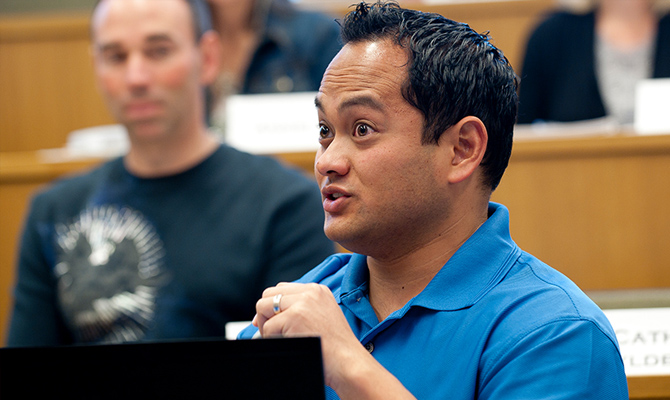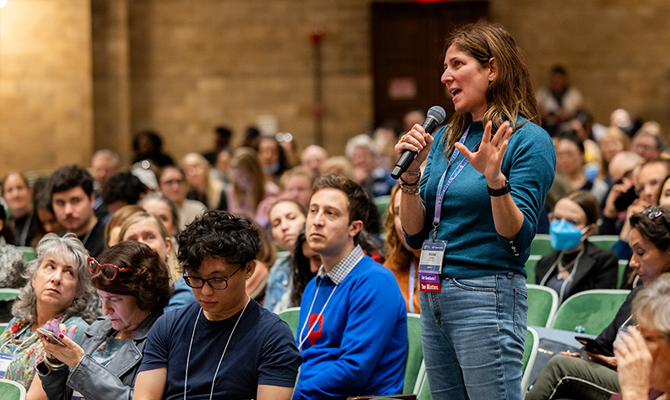By Adriana Drulla Rossi
Self-compassion is an adaptive coping ability consisting of approaching failure and hardship with balanced awareness, self-kindness, and the recognition that challenges are inherent to the human condition. Self-compassion is associated with reduced psychiatric symptoms and positive attributes that lead to human flourishing, thus being a construct of interest to positive psychology. This paper intends to contribute to the increasing body of knowledge in self-compassion by exploring its development in individuals. We conducted a cross-sectional investigation of 246 mother-adolescent dyads (adolescent age = 14.0 years, 50.8% girls), to investigate the intergenerational transmission of self-compassion and factors mediating this relationship. Results indicated that maternal self-compassion is positively related to adolescent self-compassion directly, and indirectly via parental self-efficacy and adolescent attachment to mother. We did not find evidence that the association between maternal and adolescent self-compassion is moderated by sex, or that lack of self-compassion is associated with maternal psychological control. Our results suggest the relationship between maternal self-compassion and parental self-efficacy is important in the intergenerational transmission of self-compassion. Parental interventions targeting parental competence may benefit from including self-compassion training. Findings also suggest self-compassion interventions may particularly benefit parents navigating challenging phases of child development, such as adolescence.
By Bridget Erica Elam
This capstone contains a brief introduction to positive psychology and the art of improvisation, including a review of the literature that supports improvisation’s potential well-being effects. Also included in this capstone is a description of an exploratory study on improvisation and well-being. In this study, positive and negative affect, resilience, loneliness, and perceived life satisfaction were measured among a group of actors and improvisers from all over the United States. The study also features qualitative data, collected from the same participants, coded for positive emotion, engagement, relationships, meaning, and accomplishment (PERMA) in order to consider whether working without a script offered flourishing outcomes distinct from general participation in theatre. Quantitative analysis revealed that life satisfaction scores among actors was significantly higher than those of improvisers, however, the elements of PERMA showed up more frequently in the qualitative data collected from improvisers, with positive relationships mentioned significantly more often. Findings suggest that while improvisers may have a lower sense of life satisfaction, they experience more positive emotion, engagement, and sense of accomplishment than actors and the study of improvisation has considerable positive effects on their relationships onstage and off. Implications for the creation of a new branch of the positive humanities, “positive improvisation,” are discussed, as well as suggestions for how to make traditional improvisation more intentionally positive.
See Erica’s full capstone on Penn’s Scholarly Commons website.
By Sarah Francois-Poncet
While the focus of positive psychology is uncontestably on the positive, there is an emerging direction in the field indicating that the coexistence of both negative and positive emotions is critical to well-being. The act of writing a condolence letter is a good example of precisely this coexistence: loss and sorrow giving rise to the act of expressive writing to convey positive emotions of sympathy, solace, and more. Viewed through the lens of positive psychology, writing a condolence letter has the potential to activate a unique alchemy of elements that the science of positive psychology has identified with well-being, from calling to action over inaction, meaning over despair, and resilience over hopelessness; to identifying character strengths and virtues and enhancing social bonds and generativity; to practicing the master virtue of practical wisdom in modulating the letter’s message to the context; and more. A review of condolence letters written over modern history illustrates how these elements have been used over the past two millennia. As there is little relevant empirical research on the impact of engaging in the practice of writing condolence letters on well-being, further study is in order, particularly given the challenges of COVID-19. For now, the practice of writing condolence letters would appear to offer numerous and unexpected opportunities to give rise to positive outcomes associated with increased well-being. This, in turn, enriches the support for the coexistence of the negative and the positive in a life well-lived in the science of positive psychology.
See Sarah’s full capstone on Penn’s Scholarly Commons website.
By Jodi Wellman
The practice of memento mori, acting on the Latin phrase that translates to “remember we must die,” has the profound potential to wake us up and breathe more life into our lives. While focusing on the end of our days may sound more morbid than meaningful, the contemplation of death allows us to appreciate the scarcity of the very time we’re looking to make the most of. In a world consumed with expanding the length of our lives, cultivating a more intimate familiarity with death can help us expand the metaphoric width and depth of our lives as well. We make our lives wider when we fill them with vitality and gusto, expanding the breadth of the pleasurable experiences that life has to offer while blasting us out of our autopilot tendencies. We make our lives deeper when we infuse them with meaning and purpose, elevating ourselves out of empty or mundane existences into lives that feel like they matter. This capstone explores how the field of positive psychology, with its dialectical appreciation of the positive and negative phenomena in life, is uniquely poised to explore the traditionally taboo topic of death. With the heft of all its theory, research, and practice, existential positive psychology encourages us to courageously confront death to live with more meaning and vitality: to pursue lives truly worth living.
See Jodi’s full capstone on Penn’s Scholarly Commons website.
By Felix Yarace
Organizations and societies are moving away from top-down leader-centric approaches, and leadership, management, and political studies are increasingly focusing on followership. This paper proposes a conceptualization of followership under the justice Virtue in the character strengths (Peterson & Seligman, 2004) classification, using this to bridge the divide between followership in organizational and societal contexts, and linking multiple elements of positive psychology to followership theory. Identity formation, innovation, teaming, distributed, and servant-leadership are also examined with a positive psychology lens. I argue at the conclusion that the justice virtue should be the “citizenship” virtue, as these elements are prerequisites for positive citizenship through organizational citizenship behavior and citizen empowerment and engagement in communities and are necessary for enhancement of social capital (Putnam, 1995; 2000) and for the development of heroic (Zimbardo, 2007) upstanders (Power, 2013). To support followership, I argue these character strengths should be taught in citizenship and civics classes, and in service-learning and positive youth development (PYD) contexts. While “followership” still has a negative connotation, this paper supports previous efforts to show that followership is more vital than ever for the outcomes we desire and is the first to analyze followership in positive psychology. This paper also supports an expansion of looking at leadership and the positive institutions and civic engagement components of positive psychology, helping to lead to “good teammates” who contribute through positive interventions for the “commons,” and the overall “common good” and success we aspire for in our organizations and flourishing in our communities.






